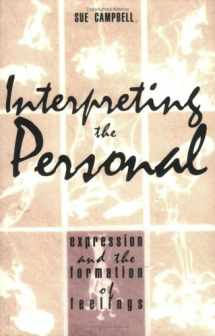
Interpreting the Personal: Expression and the Formation of Feelings
Book details
Summary
Description
"While Campbell's work is philosophically sophisticated, thanks to her grace, wit, and economy of expression, it also will be accessible to and provide compelling reading for psychologists, therapists, art critics, and actors, among others."--Elizabeth V. Spelman, Smith College
Sue Campbell reinstates the personal as an important dimension in analytic philosophy of mind. She argues that the category of feelings has a unique role in psychological explanation: the expression of feelings is the attempt to communicate personal significance. To develop a model for affective meaning, the author moves attention away from the classic emotions to feelings that are more personal, inchoate, and idiosyncratic. Drawing examples from such sources as Audre Lorde, Miriam Tlali, essayist Rick Bass, and Rostand's Cyrano de Bergerac, Campbell argues, from a feminist perspective, that what we feel can be individuated through expression to sympathetic interpreters, or it can be distorted and constricted in unsympathetic or oppressive interpretive communities. She examines the complex role of public interpretation in the formation of personal experience, and the political use of such criticisms as bitter, sentimental, and overemotional. Her work makes the political dimension of emotional expression explicit.


We would LOVE it if you could help us and other readers by reviewing the book
Book review



